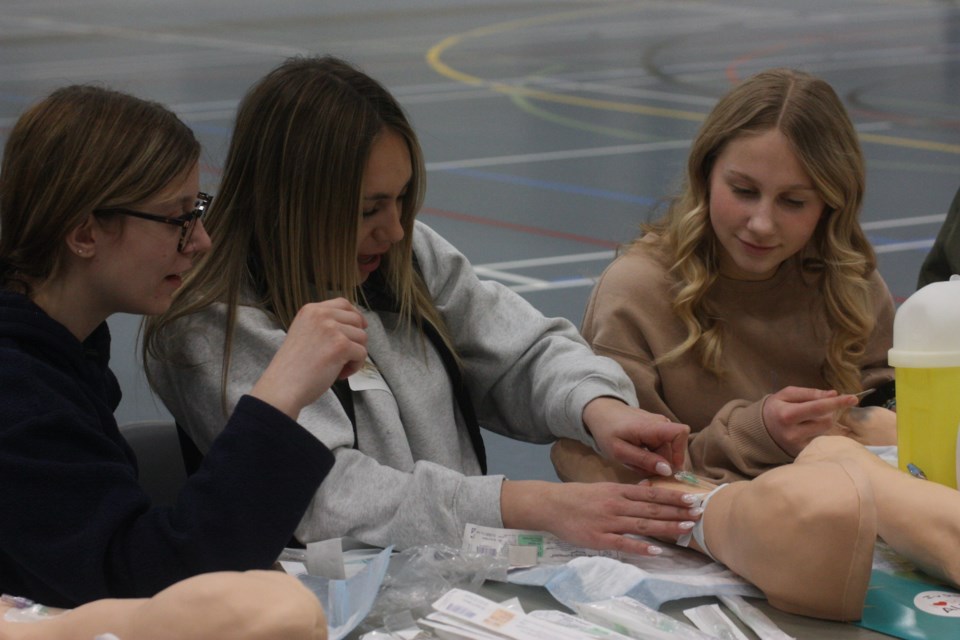ATHABASCA – Forty students from Athabasca and Boyle got an opportunity to see if a career in healthcare might be for them, as they rotated between stations featuring skills like suturing, respiration therapy, and how to give someone an IV during a first-of-its kind ‘skills-day’.
The March 21 event, hosted by the attraction and retention committee at the Athabasca Regional Multiplex, was aimed at high schoolers who may have an interest in any of the wide variety of careers in the healthcare field.
Mayor Rob Balay, who chairs the committee, said he hopes that the day “planted the seed, because studies have shown that people that start their careers, and have grown up in rural Alberta, have a greater tendency to come back and grow their careers.”
The kids had the chance to spend roughly 40 minutes at each of the five stations, which each featured experts at the skill in question. Doctors taught suturing on bits of pork, while there were multiple nurses demonstrating the differences between subcutaneous and inter-muscular injections, proper technique for intubating a patient, or assisting in their breathing with a bag. There was even a station where a paramedic taught the students how to (carefully) drill into a bone for a special type of IV line.
Once it was time for lunch, students got to listen to a panel of healthcare professionals for about 30 minutes. A local occupational therapist, recreational assistant, X-Ray/lab tech, and a mental health therapist/addictions counsellor sat and answered questions from Balay, as well as any that the students might have.
Tammy Woloncewich, the OT, said that the major draw of working in rural health care for her was the broad scope of things you get to deal with. “You’re very much a generalist, if you work in the city you often just focus on one type of an injury at a time.”
For Erin Bahry, a recreation and physiotherapy assistant, the ability to build connections with her clients is a major bonus. “I like the size of the centre (I work at), our long-term care group has 23 residents, so you get to build a relationship with each one.” She noted that a friend of hers works in a facility where they have over 100 residents, and just doesn’t have the time to build the same types of connections.



